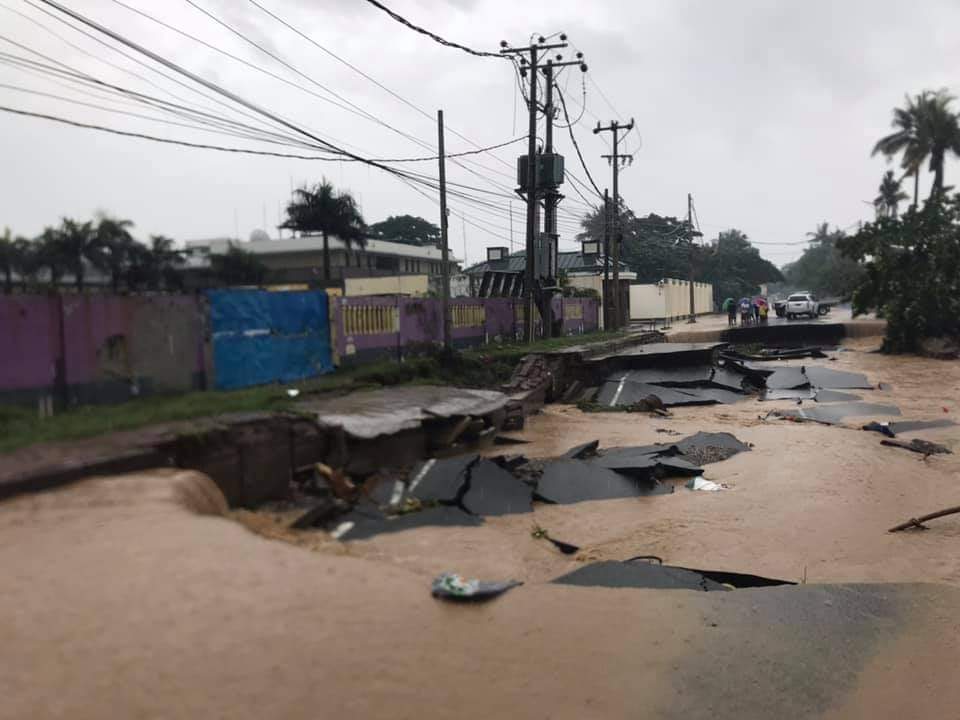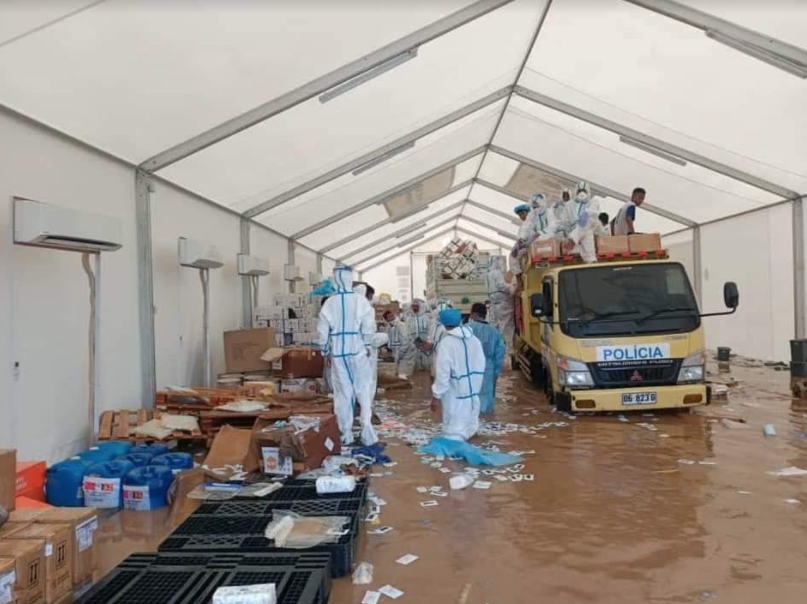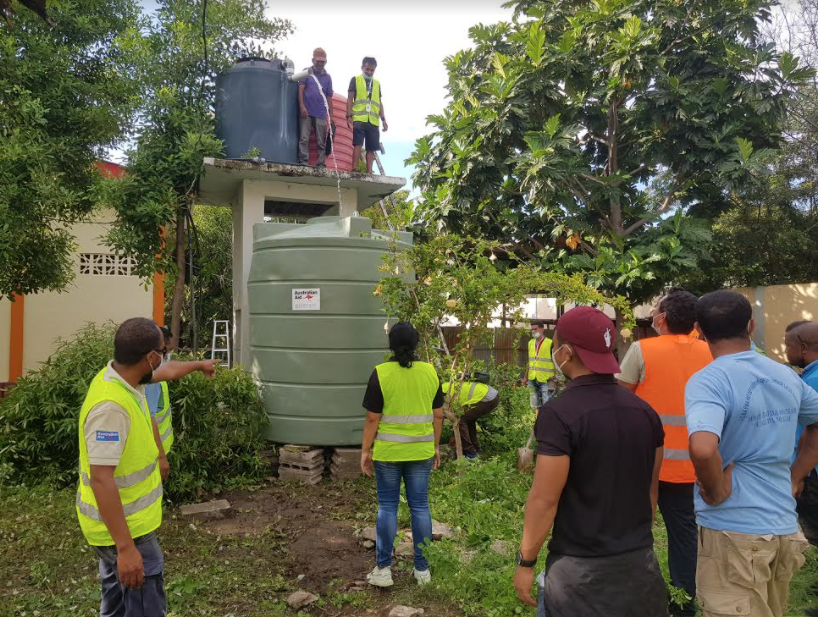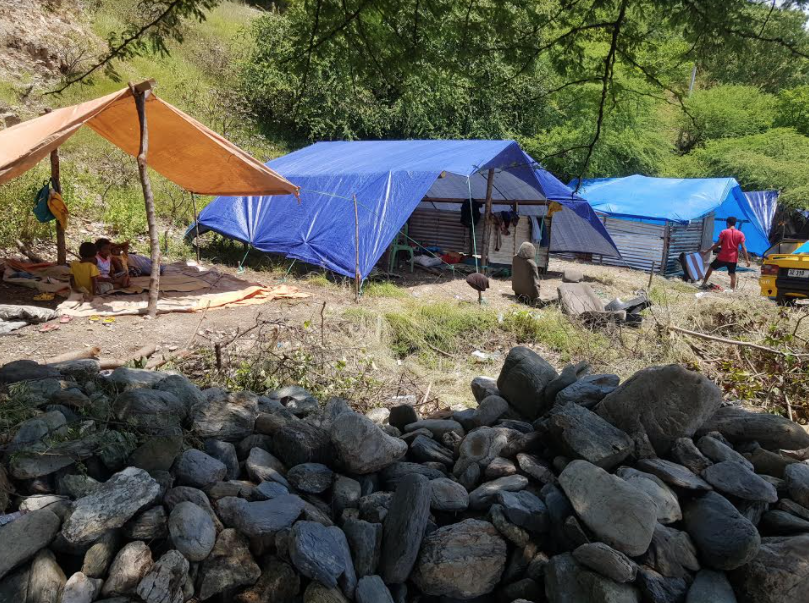Last weekend, and in the midst of a COVID-19 lockdown, heavy rain caused widespread flood damage throughout Timor-Leste. Over 11,000 people have been displaced from their homes, and 30% of Dili’s residents are currently unable to access water, due to severely damaged pipelines. With the total rainfall for April already at four times the average, the threat of further flooding remains. EWB has been able to swiftly respond to the Timor-Leste floods disaster and is working with local communities, government agencies and NGOs to support immediate disaster response efforts. (Featured image: An evacuation centre at Tasi Tolu currently housing 1500 displaced people. EWB is working to improve sanitation in the area. Image source: Jack Nugent, EWB.)
Snapshot of the disaster impact
- Water supply has been cut to about 30% of Dili’s population due to damaged pipelines, beyond repair
- Drainage canals have been destroyed and are heavily sedimented, and are vulnerable to further flooding
- Many houses on the edge of rivers have been destroyed and fallen into floodwaters
- Several main roads have been destroyed or blocked by landslides
- Whilst power supply has been restored in many locations, telecommunications remains unstable
- 1,945 households are currently sheltering in 19 evacuation centres
- 36 people were killed in the flooding and a further 17 are not yet accounted for
- Parts of Dili remain inaccessible due to deep mud and debris, destroyed roads and bridges, landslides and fallen trees
- COVID-19 lockdown measures are currently compromised with many people displaced or required to support community recovery efforts
- COVID-19 PPE warehouse has been destroyed

Several main roads in the capital Dili have been destroyed. Source: Facebook.

The COVID-19 warehouse was flooded, with all PPE supplies damaged. Vaccines were also to be stored in this facility, but thankfully had not yet arrived before the floods hit. Image source: Facebook
EWB response to Timor-Leste floods
EWB has been working with communities in Timor-Leste for many years, with much of this work focused on water, sanitation and hygiene (WASH) needs for vulnerable communities. It means EWB is well-placed to immediately respond to the Timor-Leste floods. Our initial focus will be on the capital Dili, where the majority of the damage has been caused.
All of EWB’s Timor-Leste staff have been personally impacted by the flooding. Homes were flooded as well as EWB’s office in Dili. In all cases, this damage has been relatively minor. Alongside mopping up and removing sediment in their own homes, our staff have also been ascertaining what is needed to support recovery for affected communities.
Our Timor-Leste team on the ground is working with the Department of Foreign Affairs and Trade (DFAT) and PARTISIPA, the Australian government’s program of investment in community-driven development. The immediate need is to support the PARTISIPA teams in the field to urgently install water tanks in the 19 evacuation centres. Investigating the requirements for medium-term sanitation in these evacuation centres – sites that may be required for weeks or even months yet – is also underway, in order to design solutions and coordinate implementation.
Looking ahead, EWB is also exploring the provision of household-level water filtration to affected households for when they are able to return home.

A water tank is installed at an evacuation centre by DFAT’S PARTISIPA program engineering team, supported by EWB.
Partnerships for recovery
EWB remains in close contact with DFAT, PARTISIPA, UNICEF, United Nations Development Program, the INGO network for Australian Humanitarian Partnership, Civil Protection, the Ministry of Social Solidarity in Timor-Leste, as well as the food security working group and gender and inclusion working groups, to facilitate a coordinated response to support recovery, and to ensure that no one is left behind.
EWB Australia’s work in Timor-Leste receives support from the Australian Government through the Australian NGO Cooperation Program (ANCP).
If you would like to support EWB’s work, please donate here.


